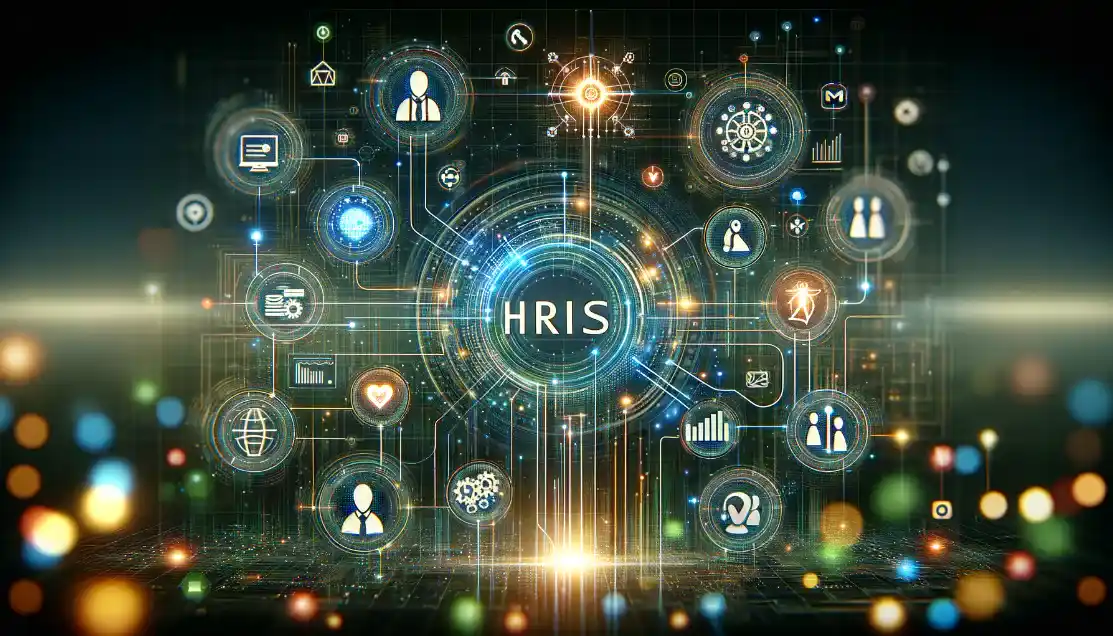Table of Contents
In today’s fast-paced business landscape, Human Resource Information Systems (HRIS) stand as indispensable tools, revolutionizing how organizations manage their HR operations. With its multifaceted functions of HRIS, it offers a dynamic platform through which companies can streamline processes, optimize resources, and elevate employee satisfaction.
By centralizing and automating key HR functions, HRIS empowers HR professionals to focus on strategic initiatives, driving efficiency and productivity to unprecedented levels.
Exploring the innovative functions of HRIS reveals its potential to transform HR operations and propel organizational success. From recruitment to performance management, HRIS provides comprehensive solutions tailored to meet the evolving needs of modern businesses.
By integrating recruitment tools, HRIS streamlines candidate sourcing, screening, and onboarding, expediting the hiring process and ensuring a seamless experience for both candidates and hiring managers.
Furthermore, HRIS serves as a strategic enabler for performance management, offering features such as goal setting, feedback mechanisms, and performance analytics. This enables organizations to foster a culture of accountability, transparency, and continuous improvement, driving employee engagement and enhancing overall performance.
In essence, by harnessing the functions of HRIS, organizations can revolutionize their HR practices, unlock untapped potential, and achieve sustainable growth in today’s competitive landscape.
1. Streamlined Recruitment Processes

A core aspect of the functions of HRIS involves automating and streamlining recruitment procedures. Through tools like applicant tracking systems (ATS), HRIS empowers HR personnel to effortlessly manage job postings, candidate screening, interview scheduling, and communication channels, consolidating these functions of HRIS onto a centralized platform.
This automation eliminates manual chores and paperwork, allowing HR teams to redirect their time towards strategic endeavors and enhancing the overall candidate experience. With HRIS, efficiency, and effectiveness converge to drive recruitment success. The streamlined processes facilitated by HRIS not only enhance productivity but also elevate the quality of talent acquisition efforts.
2. Efficient Onboarding Procedures
Efficient onboarding procedures are pivotal for new hires’ integration into an organization. This functions of HRIS plays a vital role in this process, offering digital forms, training materials, and company policies. It further automates task assignments, ensuring a structured and personalized onboarding experience.
Standardizing these procedures through HRIS accelerates integration into company culture and enhances employee engagement right from the start. With HRIS, companies can ensure seamless onboarding experiences that set a positive tone for employees’ journeys.
3. Comprehensive Employee Data Management
One of the critical functions of HRIS is comprehensive employee data management. It centralizes employee information, eliminating data silos and reducing errors. HRIS stores various data, including personal details, employment history, and performance evaluations. HR professionals can access this wealth of information effortlessly, enabling informed decision-making.
They can identify skill gaps, recognize high-performing employees, and forecast staffing needs effectively. This centralized approach ensures data accuracy and empowers HR teams to optimize workforce management strategies efficiently.
4. Strategic Performance Management

HRIS enables organizations to integrate strategic performance management seamlessly. The functions of HRIS include goal setting, performance evaluations, and feedback mechanisms, streamlining continuous performance monitoring and coaching.
By leveraging the different types of HRIS systems, managers can monitor progress, offer timely feedback, and pinpoint areas for employee growth. This alignment of individual goals with organizational objectives cultivates a culture of accountability and transparency.
Ultimately, HRIS promotes a cycle of continuous improvement within the workforce, driving organizational success through strategic performance management.
5. Robust Learning and Development Programs
Employee development is crucial for organizational growth. HRIS facilitates robust learning and development programs through its integrated learning management system (LMS) functionalities. Accessible online courses, tailored training materials, and role-specific skill assessments empower employees.
HRIS tracks learning progress, records certifications, and pinpoints training needs. This data-driven approach enables HR to design targeted development plans aligned with business objectives, ensuring continuous skill enhancement and talent nurturing within the organization.
6. Enhanced Employee Engagement
Enhanced employee engagement is crucial for productivity and organizational success. HRIS fosters this by offering features such as employee engagement surveys, feedback tools, and recognition programs. Through these functions of HRIS, it gathers valuable insights into workplace satisfaction, pinpointing areas for enhancement and morale-boosting initiatives.
Moreover, HRIS facilitates peer-to-peer recognition and rewards, nurturing a culture of appreciation and camaraderie among employees. This comprehensive approach to employee engagement promotes loyalty, motivation, and overall organizational well-being. With the right employee rewards software, HR teams can further enhance peer recognition by streamlining reward distribution and ensuring that appreciation efforts are both meaningful and timely.
7. Data-Driven Decision-Making
In the realm of HR management, making data-driven decisions is paramount. The functions of HRIS act as a robust analytics platform, furnishing customizable reports and dashboards brimming with actionable insights. These insights span workforce trends, performance metrics, and employee demographics.
Through meticulous analysis of recruitment, turnover, diversity, and engagement data, HR professionals discern patterns, forecast challenges, and craft strategies to refine HR processes and drive favorable outcomes. Leveraging the functions of HRIS ensures informed decision-making at every turn.
8. Compliance and Risk Management
In navigating Compliance and Risk Management, the functions of HRIS play a pivotal role in ensuring organizations meet labor laws, regulations, and industry standards. It acts as a shield against compliance risks by automating tasks such as managing employee records, tracking leave accruals, and documenting incidents.
Moreover, HRIS maintains accountability through audit trails, keeping the organization aligned with legal requirements and internal policies. By staying abreast of regulatory changes and upholding data security standards, HRIS effectively safeguards against liabilities and protects the organization’s reputation.
Concluding Note on the Functions of HRIS

The functions of HRIS are instrumental in elevating HR potential and fostering organizational excellence. HRIS serves as a cornerstone for modern HR management, offering a plethora of innovative features and functionalities designed to streamline processes and enhance efficiency.
By embracing HRIS, HR professionals gain access to tools that enable them to optimize resource allocation, automate repetitive tasks, and focus on strategic initiatives that drive employee engagement and productivity. Furthermore, HRIS facilitates the creation of a dynamic and responsive workforce environment, where employees feel supported, valued, and empowered to contribute their best.
As businesses navigate the ever-changing landscape of the marketplace, investing in robust HRIS solutions becomes essential for maintaining competitiveness and agility. Organizations that leverage HRIS effectively gain a strategic advantage by leveraging data-driven insights, fostering a culture of continuous improvement, and adapting swiftly to emerging trends and challenges.
In essence, HRIS is not just a tool but a catalyst for transformation, enabling organizations to thrive in an increasingly complex and competitive business environment.